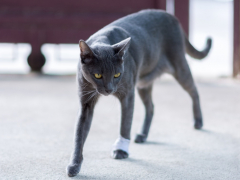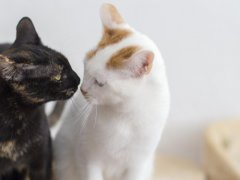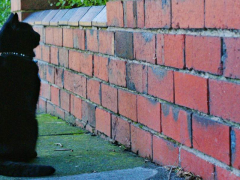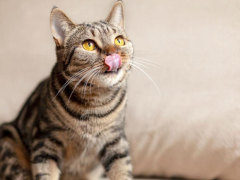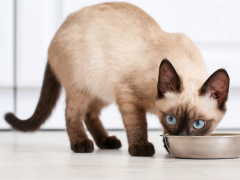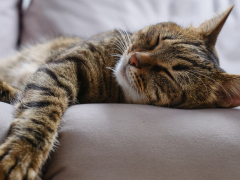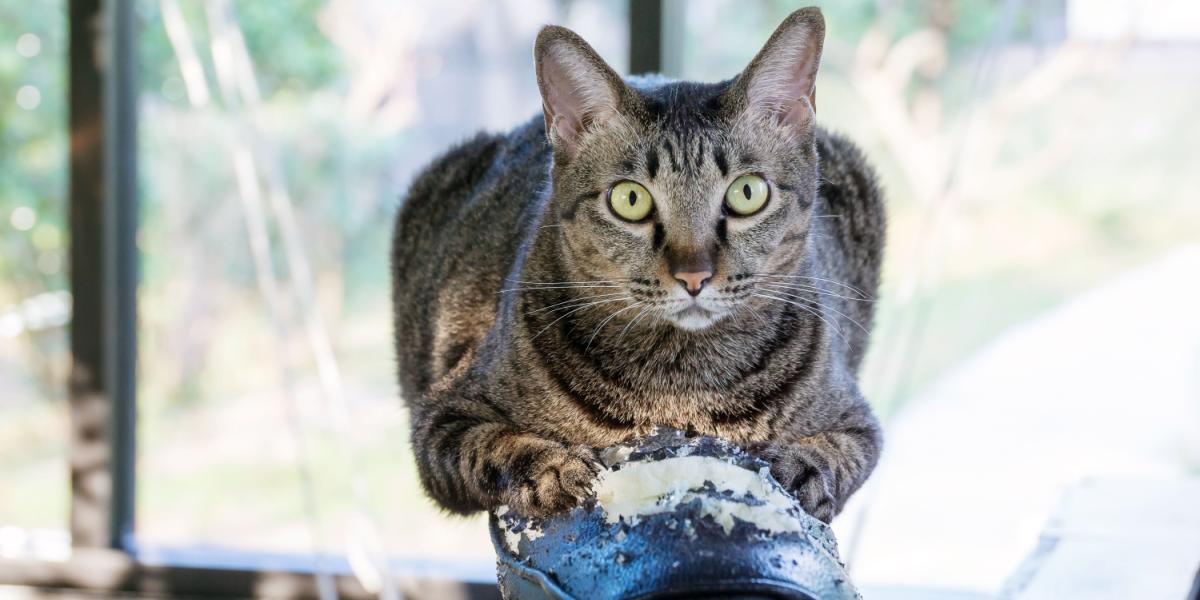
Even the most purrfect pussycats are likely to have occasional moments where they do something their pet parents wish they hadn’t. Whether it’s causing inadvertent damage to your home or belongings, or injuring you with their teeth or claws, these moments can make us feel frustrated.
However, it’s important to remember that cats don’t have the same ideas as us about what is acceptable behavior. Even so, while you’re crouched on the floor picking up the shards of a special wine glass that your cat has just knocked off the counter, you might wonder whether cats are capable of feeling guilty.
Do Cats Ever Feel Guilty?
It’s really easy to think of your cats as human beings. After all, they’re part of the family and the loving bond you share wouldn’t be possible if cats were so different from us humans, would it?
Well actually, cats don’t share the same emotional spectrum that humans have, and guilt is a complex emotion. While they are likely to be curious about what’s upsetting you or what’s caused you to give them so much attention (even if it’s not positive attention, just some exasperated words!), it’s unlikely that they truly feel guilt for what they’ve done.
This is because they don’t live by the rules that we do, they live in the moment fulfilling their need to eat, play, rest, seek company, etc. as and when that need arises. So, while it might seem obvious to us that it’s their fault that the wine glass is broken, they don’t understand the concept of human morals.
Of course, that doesn’t mean that your cat won’t pick up on your emotions, mood, facial expressions, and tone of voice. If you yell and are angry, they might be afraid and back away from you. Whereas if you are hurt or sad they might try to be close to you or comfort you, but if they do it’s probably not because they feel guilty, just because they want to cheer you up!
Why not read about whether cats have emotions to find out more about your cat’s range of feelings.
What Situations Might Make Our Cat Feel Guilty?
Here are some of the situations where you might expect your cat to feel guilty. Perhaps when you see the situation from your cat’s perspective, you won’t be so sure that they’ve done anything wrong or have anything to feel guilty for.
Pooping Outside the Litter Box
When your cat poops outside the litter box, it’s not to be spiteful nor to show disrespect, make a mess, or treat you as a slave. Cats might pass feces outside of the litter box if they are feeling unwell, have diarrhea, if they’re in pain and can’t make it to the tray, or if they’re constipated.
They might also decline to use the tray if they’re feeling stressed, being bullied by other cats in the house, or if the litter box isn’t as clean and fresh-smelling as they would like.
Peeing on Your New Rug
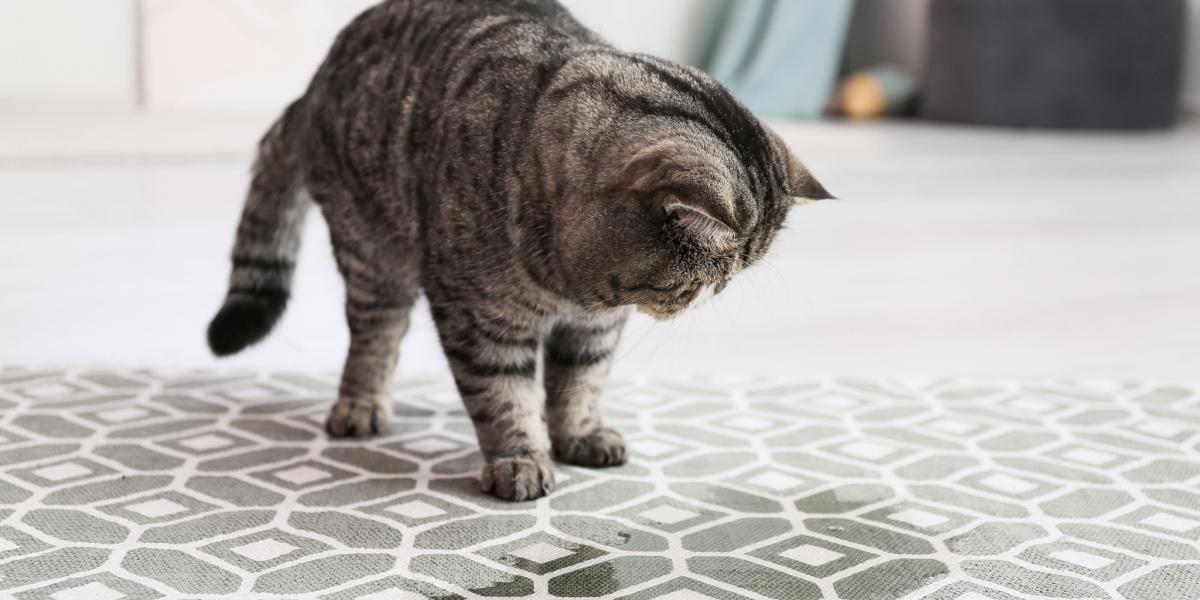
Passing urine outside the litter box is unlikely to be done by cats out of mischief, and may actually be related to stress, anxiety or health problems.
Similarly, if your cat passes urine on your new rug or carpet, or pees in the bath or on the couch, they’re not trying to create more work for you or ruin your home furnishings. It might be that they have cystitis or a urinary tract infection and their bladder is really sore. They might be scared about approaching the litter box because one of their feline housemates hangs out there and makes them feel vulnerable.
They might not like the smell of the cleaning chemicals you use on their litter box, or they might have been spooked by some fireworks or other loud noises and are afraid to venture from their hiding place to pass urine. Some telltale signs of anxiety include overgrooming (meaning you might find clumps of fur around the house), vocalization, hiding, and urinating in inappropriate places.
Scratching or Biting You
Okay, so it’s not nice to be bitten or scratched by your kitty, especially if the aggression comes out of the blue. However, rather than wondering how they can show no remorse after hurting you when you thought they loved you, consider the possible reasons behind their behavior.
For instance, they might feel unwell or in pain and were protecting themselves from any discomfort caused by you touching them. They might be feeling stressed or anxious about a new cat in the neighborhood, local building work, a new baby, or a new pet, or they might have felt like they were sending you signals to steer clear of them, and when you ignored them they had to let you know in a more obvious way.
Scratching Your New Wooden Table
If your cat has taken to scratching your furniture, you might want to read about how to stop cats from destroying furniture. Rather than trying to upset you, your cat is just doing what comes naturally when they scratch.
It’s a cat’s basic instinct to scratch as it helps them stretch, maintain their claws, and mark their scent. If they don’t have enough opportunity to scratch on a scratch mat, scratching post, or cat tree, they’re likely to go looking elsewhere in your home for something to use.
Bringing in a Dead Mouse
No one wants their outdoor cat to bring in wildlife, whether they’re small or large, dead or alive. However, rather than being angry and repulsed when your hunter returns home with their ‘prize,’ try to remember that it’s normal cat behavior, so it’s nothing that your cat should feel guilty for.
In actual fact, although the impact of outdoor cats on local wildlife is a real concern, the sentiment behind it is that they’re trying to provide for their family (you), which is touching. To try to reduce their hunting, make sure they are on a diet which includes enough protein, have plenty of toys and spend lots of time playing and interacting with them to ease their frustration.
Eating Your Lunch
Have you ever left your sandwich on a plate on the countertop for a second to retrieve sauce from the fridge, only to return with the mayonnaise to find your cat chowing down on the delicious deli meat? In this situation, you’ll probably be a bit angry or irritated, after all, by human standards it’s pretty bad manners both to stand on the countertop and to pinch someone else’s food!
But remember, we can’t force our human rules and social etiquette onto our cats – cats are very much opportunistic feeders and hunters, so it’s unsurprising that they’ll take the opportunity for a snack if it presents itself!
My Cat Acts Ashamed When I Tell Them Off – Is It Really Guilt?
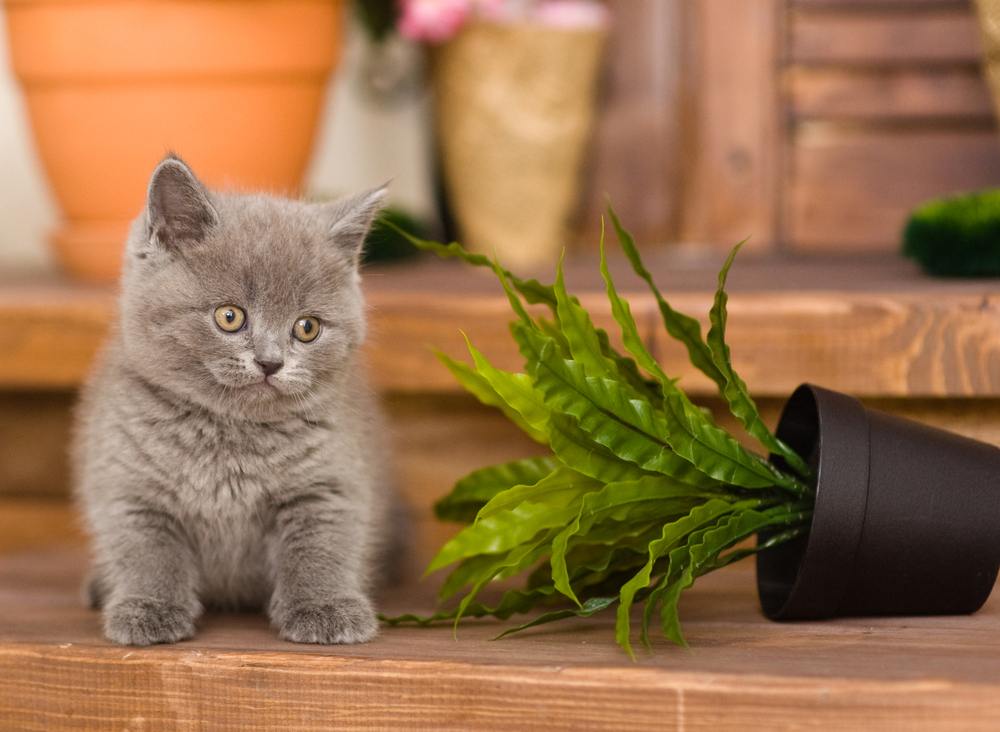
Cats learn to respond to our emotions and reactions, even if they don’t understand why their behavior is unacceptable.
Have you noticed your cat has a guilty look when they have damaged something or behaved ‘badly’? They might hang their head, lower their ears, or withdraw from you quietly when they’ve done something that you perceive to be wrong.
While this might look like shame or guilt, it’s more likely that they are scared by your reaction to their ‘mischief’ or picking up on your negative emotions.
What Is the Best Way To Prevent Unwanted Behaviors in Your Cat?
It’s really important not to punish your cat or give them a big negative reaction when they do something ‘wrong.’ This negative reaction could make them stressed, leading to more unwanted behaviors, or they might decide that having your full attention even in a negative way is better than not having your attention at all, and you might see the behavior more.
The most effective way to reduce unwanted behaviors is to use positive reinforcement of good behavior with a reward like treats or interaction. The more a behavior is performed and rewarded, the more likely it is to be repeated, so encourage good behaviors in order to see more of them. Negative or unwanted behaviors should be ignored, or the behavior redirected onto something more appropriate – such as a scratching post, or a toy.
If unwanted behavior is becoming a real problem, consider speaking to your veterinarian to get advice. If appropriate, they may refer your cat to a feline behaviorist to help you get it under control.
Summary
Cats sometimes do things that we wish they wouldn’t, but it’s not because they want to upset us, it’s because their behavior, instinct, and social rules are different from ours. Once we accept that cats don’t share human values and understand the reasons behind cat behavior, it’s easier to accept or manage, and you’re less likely to find yourself wondering why your cat doesn’t seem to feel guilty!
Also Read: Do Cats Feel Sadness?
Related Conditions:
- 10 Common Cat Behavioral Problems You Should Know About
- Stress In Cats: Causes, Symptoms, & Treatment
- 6 Common Reasons Why Cats Pee Outside The Litter Box
- Why Do Cats Scratch Furniture And Carpets?
Frequently Asked Questions
Do cats feel guilty when they do something wrong?
It’s unlikely that cats feel guilt, especially in situations where we might expect them to. This is because acceptable cat behavior is very different from acceptable human behavior!
Do cats know when they did something wrong?
Cats might know that they’ve done something wrong from our reaction, especially if it’s very loud or excessive. However, rather than making them realize that they shouldn’t behave that way, a big negative reaction could actually do the opposite.
Do cats feel bad when you cry?
Cats are very in tune with their owner's emotions, and if they know that you're upset they may choose to approach you, interact more, or even comfort you.
